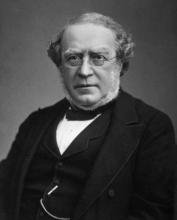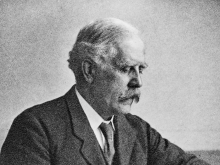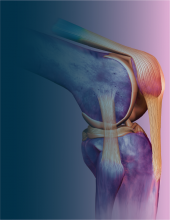Forces led by technological innovation are increasingly changing the publishing landscape. For several years, substantial changes have been proposed in the development model of scientific publications due to new policies and thoughts on the production, distribution and globalization of knowledge that have led to strong questions about everything established in the traditional world of these areas. (1).
Prior to the COVID-19 pandemic, strong changes had been taking place in the publishing industry, driven by technological transformation and knowledge management in the aspects of production, management and globalization that are rethinking the economic and production model of all types of journals, including medical ones (2).
The world crisis that the coronavirus pandemic has generated is leaving some lessons that allow us to say that the way science is done globally and how it is written is changing, perhaps definitely. While we witness political border closures as a result of the virus, scientists have been breaking borders creating unprecedented global collaboration (3).
Scientific journals are the traditional organ of expression for scientific communications. During the crisis we have seen that large publishing companies have opened special coronavirus information spaces and, in addition, have given free access to articles, greatly reducing communication time in a real battle to maintain audiences and communicate important and timely information that serves to care for affected patients. As a result of the speed that scientific information has required, much of the science published has been in preprints, preliminary publications that have existed for several years because the publication of articles through the peer review process is usually lengthy ( 4).
The pandemic is having the unexpected effect of accelerating processes that have been taking place for years. Other forms of science communication such as teleconferences between global experts have been strengthened and we have been learning in real time what has happened in other parts of the world, which has allowed us to adapt responses as the virus spreads. The use of telemedicine for patient care has also skyrocketed, and medical education has quickly embraced virtuality as a way of defending itself against physical distancing, becoming a lifeline against social isolation.
Never before have so many experts in so many countries focused on one topic and with such urgency. Many probably feel changes are occurring too fast. The truth is that most technologies being used during the pandemic were already known and have been promoted for many years.
PANLAR has employed different tools for the circulation of knowledge in rheumatology in our geographic area throughout its history: starting with the publication in 1950 of the Rheumatology Act, through the Inter-American Archives of Rheumatology in 1957 and the PANLAR Bulletin in 1982. The association with the Journal of Clinical Rheumatology as the official organ of PANLAR since 2001 allowed to have an indexed journal that currently has an impact factor of 1.89 (5). We believe that it is time to present to the world a global project from the Pan-American region, in which we have been working for more than a year on behalf of the Executive Committee. We have socialized the initiative with the members of the Board of Directors and Editorial Committee, members of the study groups and, in general, with all the people close to the environment of our organization, who with their unrestricted support and feedback have allowed us to reach this new stage.
With this project we aim at covering gaps in the dissemination of scientific knowledge, such as the lack of impact of publications outside of exclusively academic settings, avoiding the exclusive dependence on citations and promoting metrics that are appropriate for the 21st century. We also consider it necessary to facilitate and streamline editorial processes, improve the recognition of reviewers and promote the science generated by the broad community that makes up our league, while still meeting the standards expected by the global community of the specialty, without overlooking the corresponding aspects of the professional exercise that will be treated with a spirit of equity, human and scientific ethics.
Global Rheumatology by PANLAR is a knowledge dissemination platform designed for the new generations, to which the pandemic, with all the avalanche of technological implementations that have been massively accelerated or implemented, has shown that the time for this type of initiative has arrived. When we officially presented the first scale model of the platform to the Board of Directors and the Editorial Committee together with the developers and collaborators with whom we have formed a team, we were clear in noting that rather than thinking about doing projects similar to those that already exist, we wanted to bet on the future, not of journals, of which there are probably enough, but of scientific communications. You will find a unique combination on the platform: a section for original research articles and the other types of articles in traditional journals; and a magazine section, focused on the dissemination and distribution of original research published in the magazine and generated in the community. Both sections will be presented on an intuitive, friendly and visually appealing platform that immediately distinguishes it from existing ones.
We aspire for Global Rheumatology by PANLAR to be a platform for the publication and dissemination of knowledge for the 21st century. The first of its kind and according to an association of our characteristics. We consider it necessary to give rheumatology a global perspective that it will hardly have following established rules designed for the 19th and 20th centuries, in order to definitively enter the 21st century.
We hope that PANLARs proposal to the world of rheumatology is to your liking and helps to promote the specialty not only in our geographical region, but globally, allowing universal ideas and experiences to be better known and the platform to become a favorite in presenting and circulating the work of the global community.
References
- The Future of the Academic Journal Second Edition . Edited by Bill Cope and Angus Phillips http://neamathisi.com/_uploads/Cope__Kalantzis_Changing_Knowledge_Ecologies_2014.pdf
- What to expect in 2019: science in the new year https://idp.nature.com/authorize?response_type=cookie&client_id=grover&redirect_uri=https%3A%2F%2Fwww.nature.com%2Farticles%2Fd41586-018-078473
- Covid-19 Changed How the World Does Science, Together https://www.nytimes.com/2020/04/01/world/europe/coronavirus-science-research-cooperation.html
- COVID-19 SARS-CoV-2 preprints from medRxiv and bioRxiv
- The History of PANLAR Throughout Its Evolution Caballero-Uribe, Carlo JCR: Journal of Clinical Rheumatology: January 2019 - Volume 25 - Issue 1 - p 1-3 doi: 10.1097/RHU.0000000000000798













































































































































































































